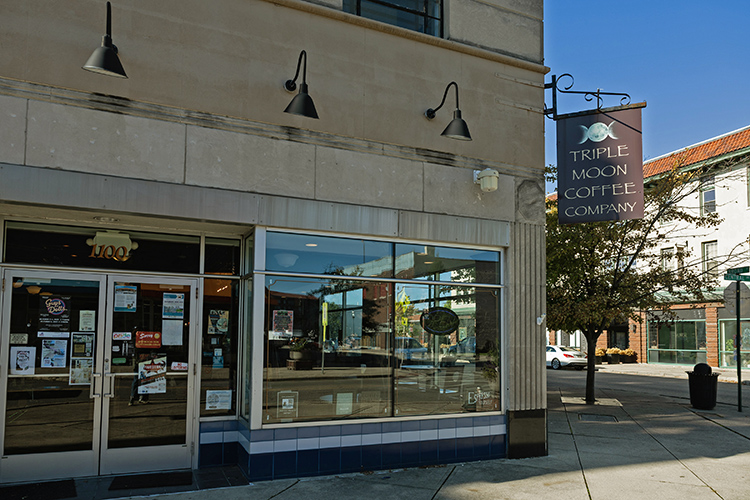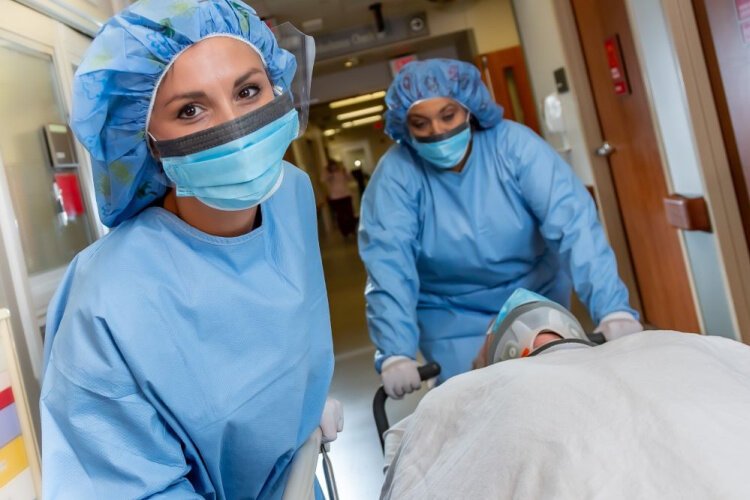A monk shares his lessons from a life of quiet contemplation
Social distancing is new to many of us, but for Brother Paul Quenon, it’s been his life for 61 years.

Life has changed.
We’re staying home, trying to find new rhythms to our days. The rapid spread of a new virus means we’re not on the go so much. Maybe we’re turning more inward. It’s quieter, slower.
Maybe it’s also uncomfortable and foreign.
For Brother Paul Quenon, it’s been a way of life for 61 years.
Brother Paul is a 79-year-old monk who has lived the monastic life at the Abbey of Gethsemani since he was 18. The Abbey, 150 miles south of downtown Cincinnati near Bardstown, Ky., has been home to a community of Trappist monks for 150 years. They lead a life of contemplation, work, prayer, peace, and quiet.
I spoke to Brother Paul about what we might learn from him and his community during this time.
How do you think people will get through this?
A lot of people are feeling under pressure; they’re feeling over-busy and over-pressured. A lot of people are addicted to that too. It might be an opportunity for them to get off that addiction. A lot of people are going to be grateful for a change of pace.
Do you think we can learn something from this period?
We can learn the value of staying in one place and being quiet. Pascal said one of the hardest things for a person to do is to stay in their rooms and just be quiet.
Why did you become a monk?
I thought it would be a quiet life. It would be something where I could live close to God. And it would be a community life. The thing I found is that prayer is not just something you do in church. I found that love can be found in prayer, and that’s what I wanted.
You were a teenager then, that seems like profound thinking for a 17- or 18-year-old.
We don’t always give young people credit. They may not know themselves but they have a good instinct to come to self-knowledge.
What are your days like?
The monastic life has activity. We have activity and rest, rest in the sense of reading and meditating. We have a divine office and Mass. Everyone has a job they do. A minimum of four hours a day, it might be more than that.
What is your job?
I cook. I’ve been cooking for over 35 years now. I cook for the community and for the retreatants. Sometimes I do some yard work.
What about when you’re not working?
Sometimes I might take a hike. I write. Then reading, that’s one of the basics of our life, it’s called lectio divina, divine reading. I walk. It’s a big place so you have to walk a lot to get, say, from the dining room to brush your teeth or something. It might be half a city block.
Do you observe periods of silence?
Yes, from 8 at night to 8 in the morning. At 8 o’clock at night, we enter what is called the “grand silence” and you don’t talk unless something is really necessary. It’s really a relief. That might be an opportunity for families to find out they can be silent together without being uncomfortable and its OK.
Hopefully, they’ll find family activities like playing cards or singing music. That was a skill that families in the past had. They would stand around the piano or they might get out a deck of cards. Or just pray together, pray the rosary together. But I think that’s become a lost practice, because television has really diminished family life.
Do you ever leave the Abbey?
If you want to leave the Abbey you have to get permission from the abbot. We are living a closed life, so the ideal is to have minimal contact with the world.
How do you manage?
It’s good to have a structure, things to do at certain times of the day. It helps the time to pass; it gives you something to look forward to. It gives you a sense of what you’ve done and what still needs to be done.
Some people are very uncomfortable with this new normal.
It’s delusional. They’ll probably like it once they get it, once they get a chance to really spend some time alone. I’m afraid some people will go home and get drunk the whole time, or sleep it off. It’ll be a test of what your real values are. It might be a chance to find out whether your values are real or not.
Maybe it’s a time to reconnect with family?
A lot of people feel they don’t get a lot of time with their family. And some people feel uncomfortable with their family. They may have to face some issues and get over some rough patches. It’s a salutary moment in a lot of people’s lives. If they take it as a positive challenge and an opportunity to grow, then it will be worth it.
What do you like about this life that others might learn from?
It’s good to be alone and to learn how to be alone. You find out when you’re alone that maybe you feel less alone.
If you’re at peace with yourself, there’s a kind of fullness that arises. And it gives you a chance to think about life and other people. Often, we don’t have enough time to think about what’s going on. Now maybe people will have time to think.
The Abbey of Gethsemani is a monastery located near Bardstown, Ky., about 150 miles south of downtown Cincinnati. The monastery sits on a working farm of 2,000 acres. It was founded in 1848 and is considered the motherhouse of all Trappist monasteries in the United States.
About 40 monks live a life of prayer, contemplation and work there. Gethsemani was the home of Trappist monk, social activist, philosopher, and author Thomas Merton from 1941 until his death in 1968.
Gethsemani has a retreat house with 30 rooms for visitors, although the monastery is not accepting visitors during the current virus outbreak.














